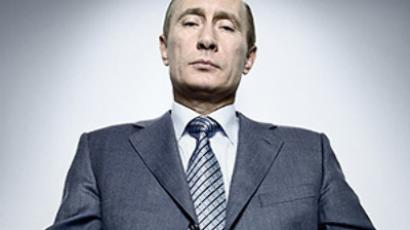Russia-Turkey: $100-bln friendship sealed with oil, gas and nuclear power
Turkish PM Erdogan discussed strategic cooperation with President Medvedev and South Stream with PM Putin. His delegation also signed a preliminary deal to build Turkey’s first nuclear power plant by a Russian company.
During his meeting with Russia's Prime Minister Vladimir Putin, Turkey's Prime Minister Tayyip Erdogan confirmed all earlier understandings achieved on energy between his country and Russia, including both the South Stream and Samsun-Ceyhan oil pipeline projects.
Energy commitments reaffirmed
The agreements on energy cooperation were signed in August 2009 and involved creation of a working group.
The main suppliers of gas in Central Asia, Azerbaijan and Turkmenistan have still not agreed to provide gas for Nabucco. Turkmenistan is looking east, to China, as a fast growing energy market, and Azerbaijan is taking its time to win the best deal possible.
However, the costs of both projects are immense. The €25 billion South Stream project is Gazprom's most costly undertaking. The Nabucco project, estimated at about €10 billion, may be a better economic choice according to IFC Metropol senior analyst, Aleksandr Nazarov.
“The sources are probably the same. The Central Asian gas, that is Turkmenian gas, primarily, and, partially, Iran, and gas from Azerbaijan. This one will be cheaper and probably more cost efficient than South Stream.”
The 3,300-kilometer-long Nabucco pipeline will run from Erzurum in Turkey via Bulgaria, Romania and Hungary to a major natural gas hub in Austria. Bulgaria, Turkey and Hungary, are also involved in South Stream. But with demand in Europe for gas already falling, the party that builds their pipeline first is likely to make their competitor obsolete and will win the market.
Nuclear construction to intensify energy trade
While Erdogan was meeting with Putin and Medvedev, Turkey’s Energy Minister, Taner Yildiz, and Russia’s Deputy Prime Minister, Igor Sechin, signed a joint statement on construction of a nuclear power plant in Turkey.
Turkey plans to build its first ever 4-block plant at Akkuyu on the Mediterranean coast, and a consortium of Russian RAO UES, Atomstroyexport and Turkish Park Teknik is bidding for the $18-$20 billion project.
With so many energy deals pending between the two countries, Russian companies have expressed a desire to participate in the privatization of Turkey’s enterprises.
Putin declared that the two countries “can not only sell energy resources, but can also exchange assets and resolve the issues of cross-capitalization.”
In particular, Russian Stroytransgaz has set its sights on Istanbul’s gas distribution company.
To ease this deal and other similar investments, Russia and Turkey intend to use each other’s currencies in reciprocal payments.
According to Erdogan, Turkish legislation now permits performing operations with Russian roubles and two Turkish banks already trade in them. Russian banks are also working to be able to deal with the Turkish lira.
Visa abolishment to boost mutual trade
For quite some time, Turkey has remained one of Russia's top trading partners. Despite a 40% decline during crisis-hit 2009, Russia’s trade with Turkey is still larger than with the US and the UK, according to Putin.
Turkey is the second largest importer of Russian natural gas after Germany (it constitutes 70% of overall trade) and it also buys Russian metal products and mineral fertilizers. Imports from Turkey to Russia include transport means, consumer goods and food.
“Trade and economic cooperation was vigorously developing and remains quite weighty, despite certain losses. Ambitious goals have been set for the near future,” Medvedev said.
Among other things, Turkey is one of the more popular tourist destinations for the Russians. For that very reason the two countries will establish visa-free travel. It could happen as early as spring-summer 2010.
It is these kinds of measures that will lead to Russo-Turkish trade reaching $100 billion in five years.
“The impact of the global financial and economic crisis has somewhat decreased our trade. But this is why we got together today, to discuss how to overcome these difficulties and how to reach a trajectory of sustainable growth in trade and economic cooperation and bilateral investment. We are going to employ both proven mechanisms of cooperation and new avenues,” Putin said.
“Today the Prime Minister [Erdogan] spoke of a possibility of reaching $100 billion in trade within five years. I think this expectation is absolutely reasonable,” he concluded.
Diplomatic solutions awaited
On the whole, Erdogan’s visit commenced in a friendly atmosphere.
“Relations between Russia and Turkey are on the up, these are true relations of a strategic partnership. We have successful political dialogue, trade and economic co-operation as well as big projects in energy. I hope your visit will contribute to solving complicated issues, such as regional ones. Our countries are neighbors and the microclimate in our region depends on how close our positions are,” Medvedev told Erdogan at the beginning of their meeting.
“The relations between our countries have recently reached their climax. We have a purposeful co-operation in political, economic and defensive spheres. We have exemplary co-operation in energy, but we believe we could develop the same kind of ties in different directions. We have a series of opportunities not only in natural gas, but in oil as well,” Erdogan responded.
Among political issues that were discussed by Russian and Turkish leaders were the security arrangement in Europe, the peaceful resolution of conflicts in the Southern Caucasus, and Iran’s nuclear programme.
Managing to speak to students at Moscow State University of International Relations in-between his many meetings in the Russian capital, Erdogan voiced his stance on Iran.
“Though Iran pursues a controversial nuclear policy, we believe there is no alternative to a diplomatic solution to Iran’s problem,” he said.
As for the Nagorno-Karabakh problem and Turkey’s relation with Armenia, Putin urged Turkey not to “tie up everything in one package”.
“Each of these problems alone is very hard to resolve, and if we throw them all into one pile, the prospect of their resolution will be automatically postponed until a very distant [time],” he said.













